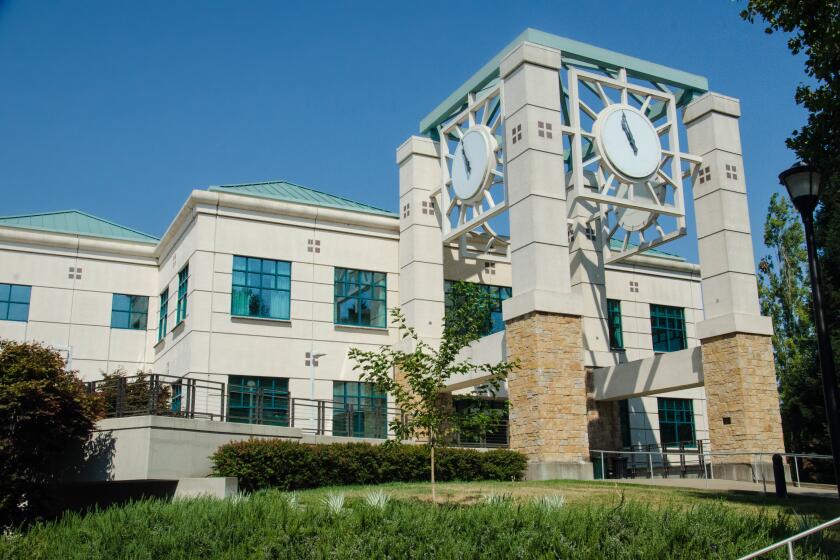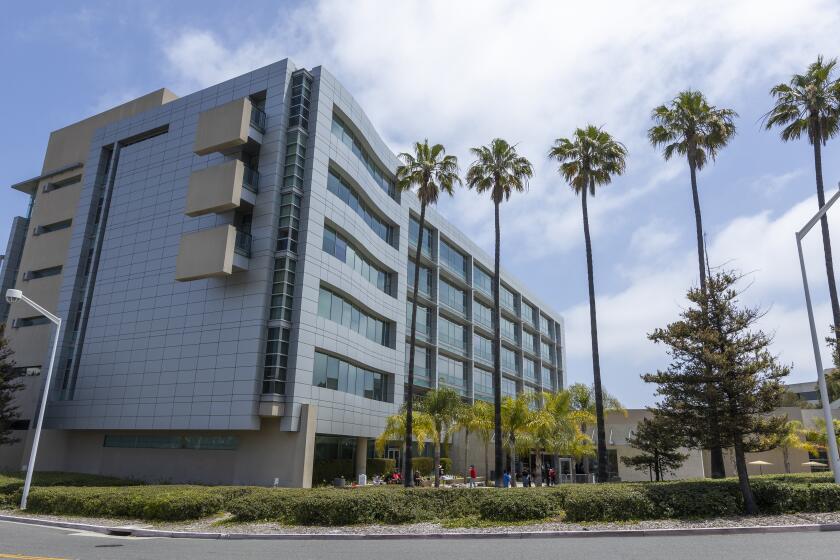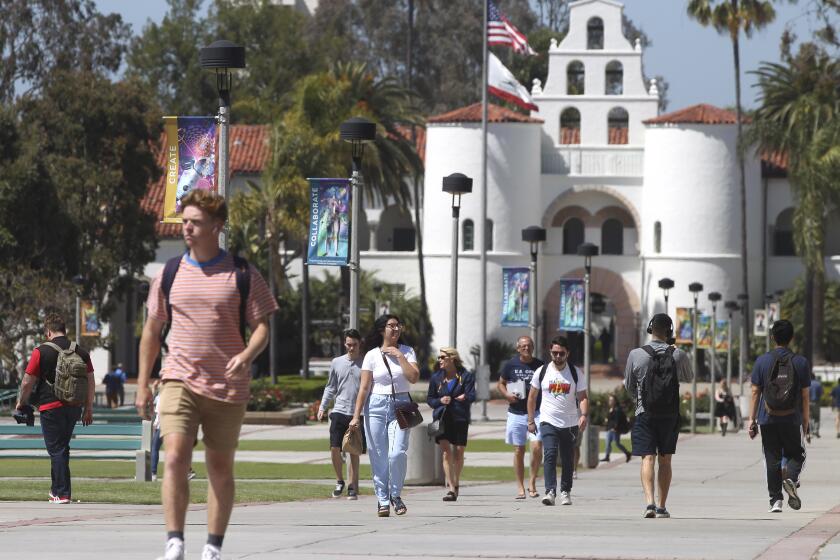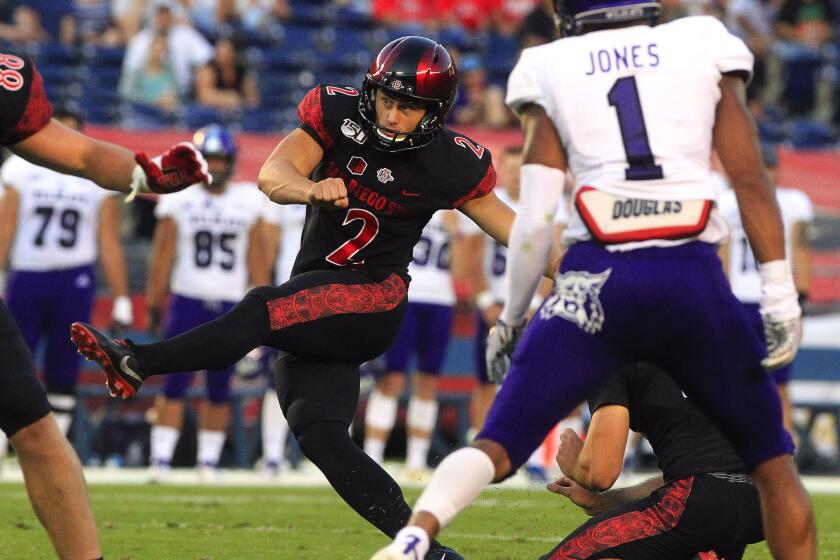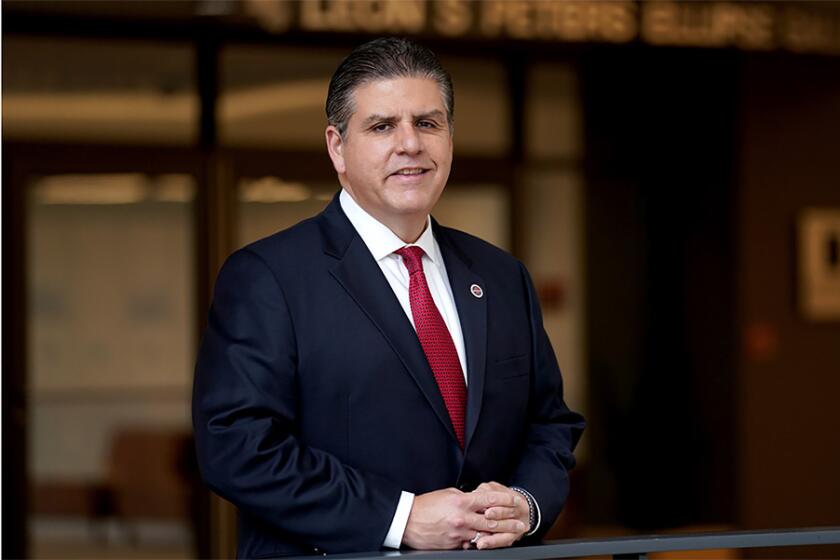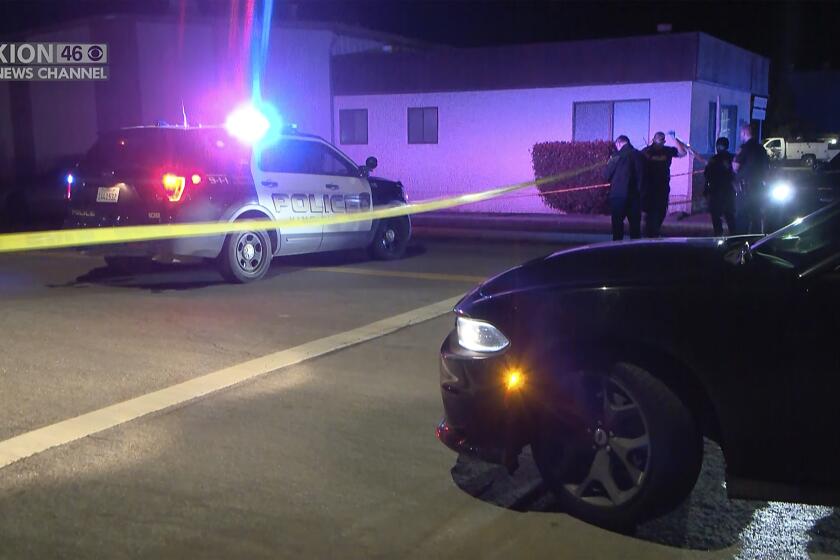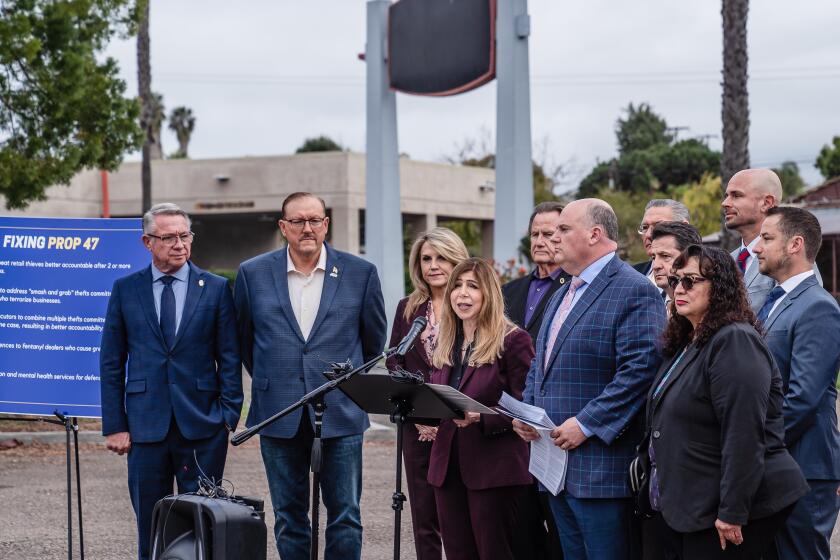Claims that five San Diego State football players raped a girl were followed by months of silence
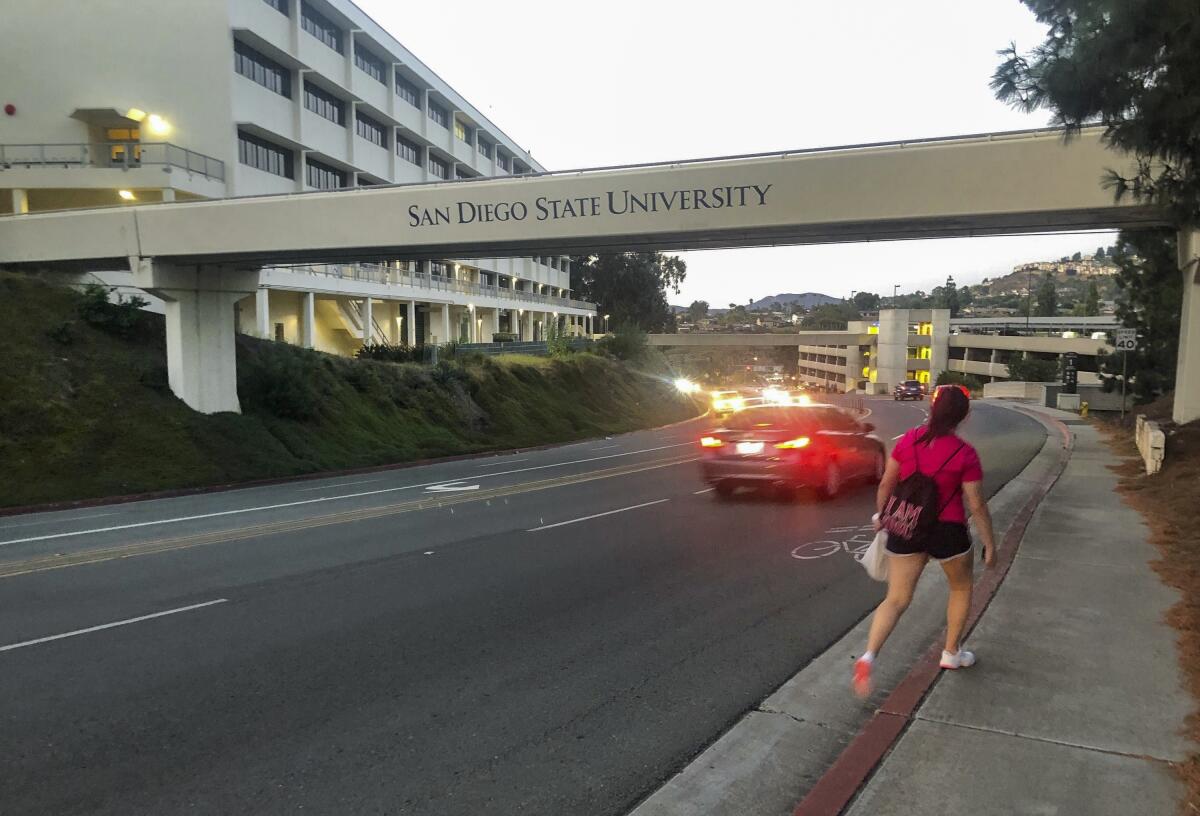
San Diego State University held off investigating at the request of police, who say their inquiry into the alleged October incident involving a minor is ongoing.
The reports to campus officials late last year revealed disturbing allegations about players from San Diego State University’s winning football team.
Claims were rapidly spreading among the school’s athletes that five players had raped an unconscious girl and left her bloodied and bruised at a house party off campus.
“I am very scared and worried that nothing is being done about this,” one student-athlete told university officials in a message sent through an anonymous reporting system, which was reviewed by The Times along with other internal campus records in the case.
Now, more than seven months after the alleged Oct.16 incident, San Diego State officials have not launched an internal investigation or student disciplinary proceeding, both of which are intended in part to help protect students and employees from those found to have engaged in sexual misconduct. Nor have they alerted the campus that police are investigating a reported sexual assault involving students and provided information for potential witnesses to contact authorities.
Recent revelations about how California State University handled sexual harassment and workplace retaliation complaints have rocked the nation’s largest four-year public university system.
The university said in statements to The Times that police asked campus officials to not take any action that would compromise the criminal investigation, which authorities said involved the alleged rape of an underaged girl. This included launching a Title IX investigation into sexual misconduct or a review to determine whether there were student conduct code violations, which could lead to suspension or expulsion. The university said it would otherwise respond immediately to reports of sexual misconduct and that it provides extensive programs and services to deal with such issues.
Josh Mays, an associate vice president who oversees campus public safety, said that “given the serious nature of these allegations,” it was imperative to allow police to investigate. “To willfully interfere — as any university parallel investigation would do — would jeopardize any chance of the truth and justice through the criminal investigation,” he said in an email to The Times.
San Diego police said its investigation is ongoing but refused to provide basic details to The Times, including the date and location of the incident and whether any suspects have been questioned.
In interviews, Title IX and legal experts said it can be appropriate for schools to comply with police requests to delay investigations but that it was troubling that San Diego State has held off on taking action for nearly an entire academic year. They noted that the university is obligated to investigate to ensure the safety and civil rights of students and employees. Though a campus can temporarily delay an investigation in compliance with a law enforcement request, it’s at the university’s discretion whether to do so and to determine for how long, they said.
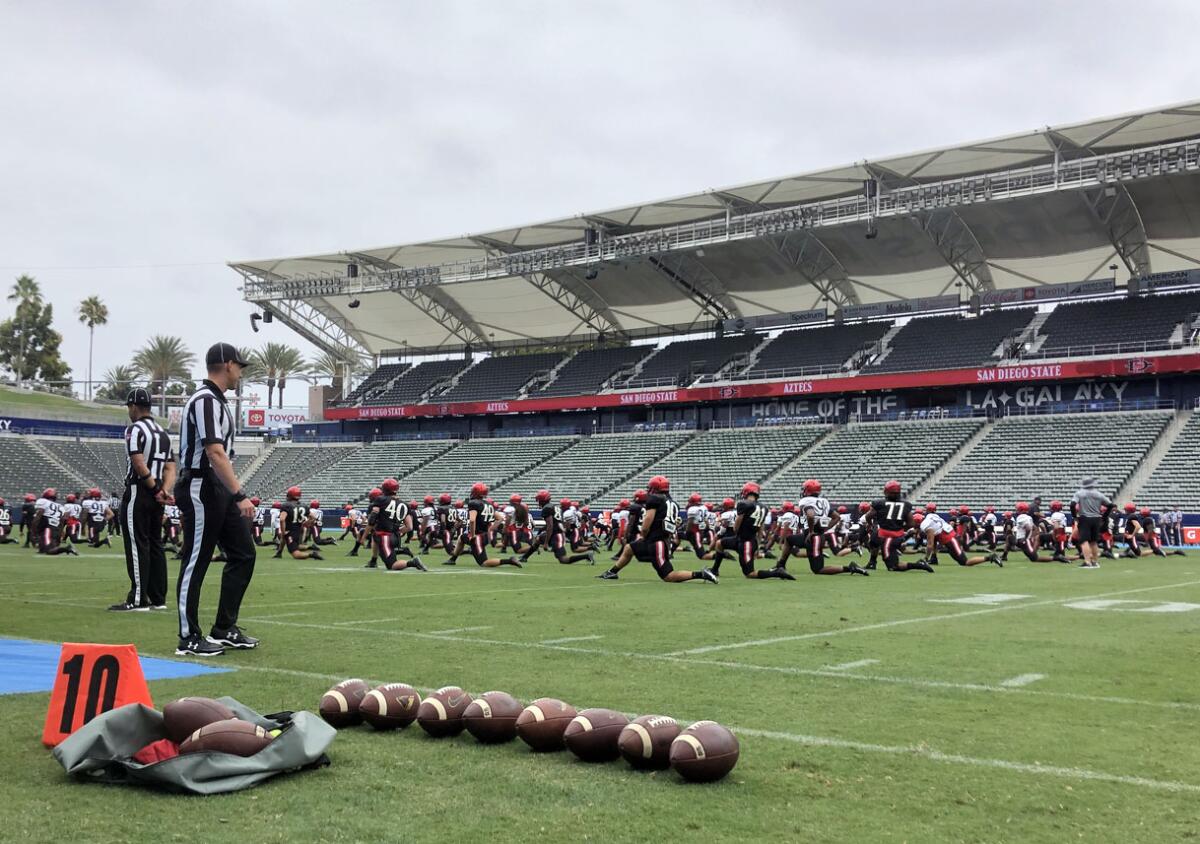
“While they may not be required to investigate right away, they are required to assess the situation and make sure that their students are safe and take whatever measures necessary,” said Alex Zalkin, a San Diego attorney who has represented victims of campus sexual misconduct. “If they simply sat back on their hands because law enforcement is doing their thing, then I think that is irresponsible.”
Shiwali Patel, director of justice for student survivors and senior counsel for the National Women’s Law Center, said universities “should not hold off on looking at a complaint until a law enforcement investigation is done because that can take years.”
The university noted that it was not required under federal law to send out a crime alert to the school community because the incident occurred at a private home off campus. Experts, however, said some other universities have sent out notifications about sex crimes in similar circumstances and that a school can work with police to determine what measures can be taken to notify the campus and ensure the safety of students and employees.
Such measures could include sending out a general message to reassure students that allegations are under investigation and provide information on accessing campus resources and contacting police, experts said. University officials, they said, could also monitor or restrict the activity of students suspected in the incident.
Before police formally asked the San Diego State president to delay its investigation, some campus officials privately discussed the pressing need to launch an inquiry and that they couldn’t “continue to do nothing while SDPD takes their time,” according to the internal records reviewed by The Times.
The disclosures at the San Diego campus come as the nation’s largest four-year public university system grapples with how it handles complaints under Title IX, a law that protects people against gender discrimination and sexual harassment at educational institutions that receive federal funding. Controversy has shaken top CSU leadership, leading to the resignation of Chancellor Joseph I. Castro in February over his handling of sexual harassment and bullying complaints against a top administrator when Castro was president of Fresno State.
Scandal has also swept across the Sonoma campus, where faculty voted no confidence in the leadership of President Judy Sakaki and two state senators have called for her to step down over her handling of sexual harassment and retaliation complaints involving her and her husband, lobbyist Patrick McCallum, who was designated as an official campus volunteer.
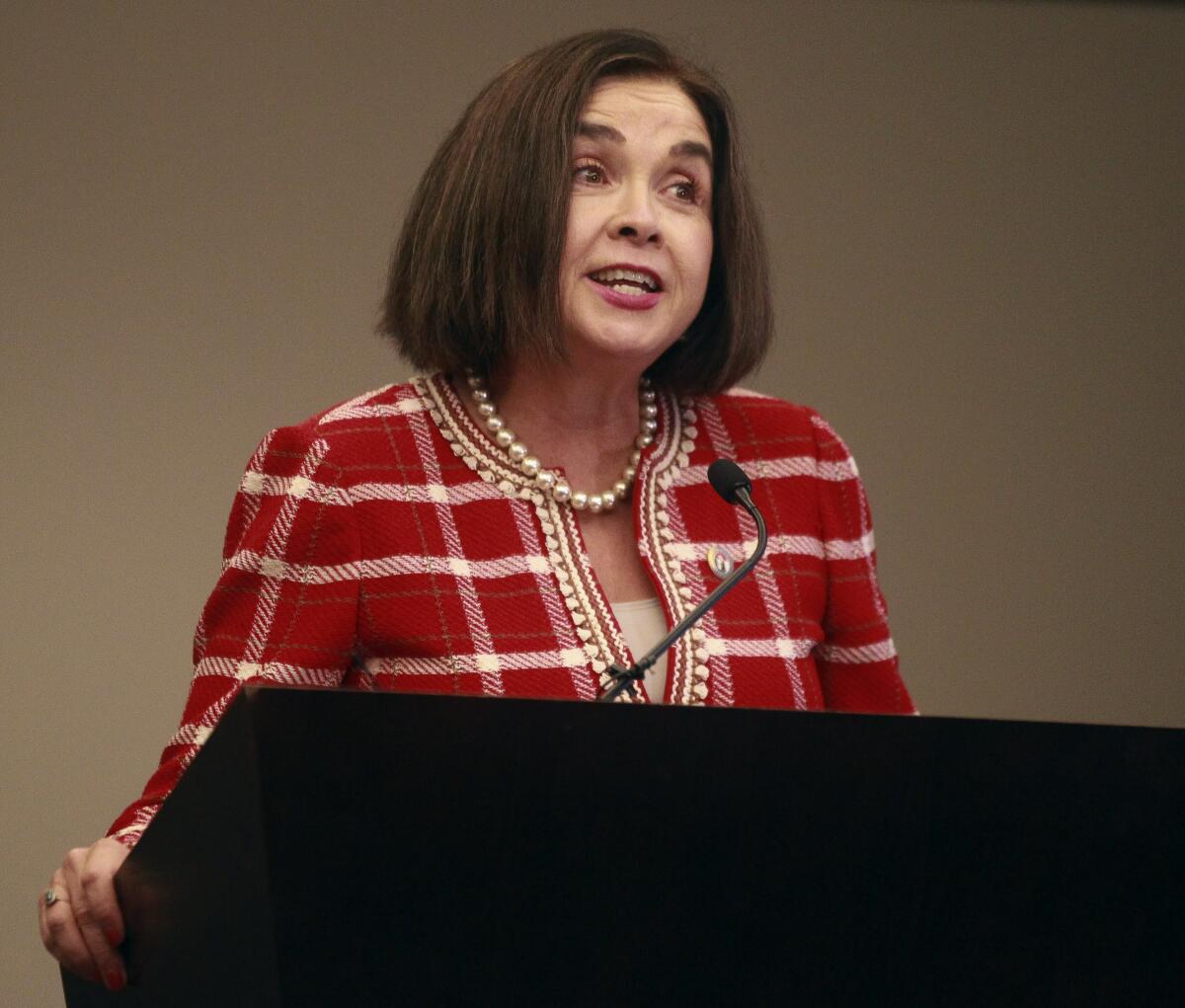
In past years, San Diego State has been confronted with allegations of sexual misconduct. Social activities were suspended at all fraternities in 2014 after members behaved inappropriately toward marchers protesting sexual violence on campus. In December, a student accused university officials of failing to act promptly after she reported to campus police that she had been raped in a co-ed dormitory by an international student who later left the country. SDSU said the case is still under Title IX investigation and was referred to the district attorney’s office.
At the time of the alleged rape by football players, the San Diego State Aztec football team was riding a six-game winning streak in one of its best seasons in years. The team finished with a 12-2 record and was ranked 25th in the nation in the final Associated Press poll. Next fall, the Aztec squad is scheduled to play in its new home — an estimated $310-million stadium that will be a centerpiece of an ambitious multibillion-dollar campus development project.
Cal State records reviewed by The Times show that officials said the alleged rape occurred on Oct. 16, one day after the football team beat rival San Jose State in a Friday night game.
The records, including the anonymous reports and communications between campus leaders and officials in the chancellor’s office in Long Beach, provide a window into how San Diego State officials reacted to law enforcement requests and the disturbing anonymous reports about the incident from people described by officials as student-athletes.
Three days after the alleged rape, San Diego State President Adela de la Torre and other campus officials learned of the accusations after police contacted the university. A university spokeswoman said De la Torre was not available for interviews for this report.
On Oct. 26, a message sent through the anonymous reporting system was reviewed by Jenny Bramer, the university’s executive associate athletic director and deputy Title IX coordinator: “5 football players raped an unconscious girl at a football party two weeks ago.”
Bramer and the campus Title IX coordinator used the reporting system to question the student-athlete who sent the message, the records show.
The student-athlete was not at the party but had heard from others that “the girl was left bruised and bloody … in the backyard of a football house. Not even in a room.” She had undergone a rape examination, the report said.
“I suggest that the head coach is spoken to and the football players. They know who did it and I am sure they know who the girl is,” the student-athlete told Bramer, adding that “multiple student athletes” were aware of the accusations.
The student-athlete, who described being frightened about being identified, provided the name of one of the football players, a senior, and said the others were freshmen, according to the records.
That night, a second anonymous report from a student-athlete came in regarding “very disheartening and disgusting information” that was “spreading quickly” in the athletics department.
This student-athlete also was not present at the home during the party but reported hearing similar accusations, including that the alleged victim took a rape kit. The student described being frightened and concerned that coaches were “trying to sweep it under the rug because our football team is doing so well.”
“99% of the football players are aware of the 5-person rape so the rest of the student-athletes are left wondering why nothing is being done,” the student said, adding: “Every person in authority here at SDSU needs to be aware of this, including Adela de la Torre.”
San Diego State officials were poised to launch an investigation in late October based on the secondhand information they had received, according to records reviewed by The Times.
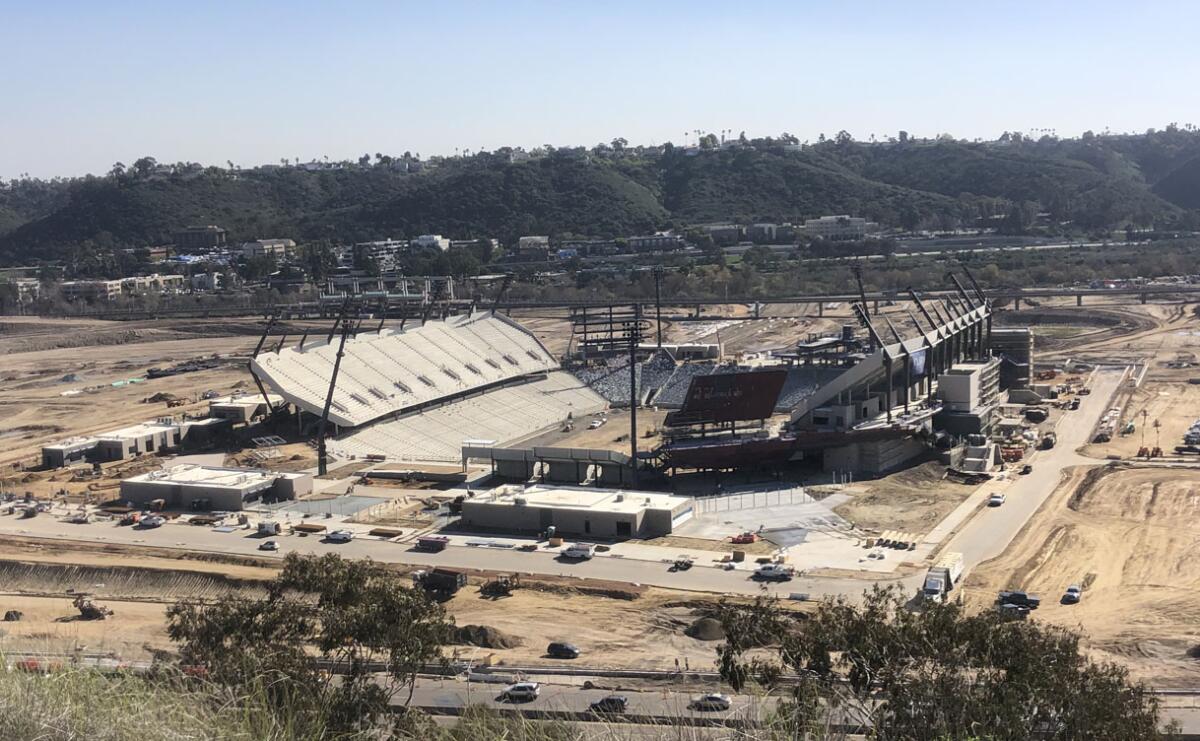
“Please conduct your investigation. I suspect your team may be able to gather info that will only help SDPD. We have stood by long enough,” Mays, then the university’s police chief, wrote in an Oct. 27 email to Senior Associate Vice President Jessica Rentto, who oversees Title IX.
Rentto said campus officials needed to take action, saying that “we can’t continue to wait and shirk our federally mandated obligation to investigate ourselves,” if police didn’t plan to act quickly.
Rentto declined to comment and the university said Bramer, the deputy Title IX coordinator, was unavailable for an interview.
On Oct. 28, one day after that exchange and 12 days after the alleged rape, San Diego Police submitted a formal request to De la Torre asking the university to temporarily delay its inquiry “to ensure the criminal case is not compromised.” Police believed the incident occurred off campus and the alleged victim, a minor, was not a student at the school, Assistant Chief Paul Connelly wrote in a letter to De la Torre. “Preliminary information leads us to believe SDSU students might reside at the house where the incident occurred,” he wrote.
The letter said such “investigations are complex and require a great deal of time, nuance, and attention to detail.”
Rentto responded on Nov. 12 and acknowledged the university’s compliance. In December, she asked police to share the school’s complaint form and Title IX coordinator’s contact with the alleged victim, whose identity remained unknown to the university.
Rentto said the lack of firsthand accounts of the incident affected the university’s ability to go forward with an investigation, adding that “any further delays may adversely impact the university’s ability to fully investigate.”
The legal experts questioned such assertions, saying that a sexual misconduct investigation should not be hindered by a lack of information from a victim or direct witness if the university has received reports of the incident.
The football player who was named in one of the anonymous messages as a participant in the alleged rape has graduated from the university. The campus can no longer compel him to participate in an internal investigation.
The university said it informed the chancellor’s office about the alleged rape and members of the CSU Board of Trustees were briefed about the incident, according to records and interviews.
Trustee Jack McGrory, a San Diego State alumnus and former San Diego city manager, said he was satisfied with the university’s response, but he acknowledged that the case has dragged on for too long.
“The cops are not telling us a whole lot,” McGrory told The Times. “It’s frustrating.”
He said the university needed to reach out to police officials and try to resolve the matter.
“Adela [de la Torre] and I need to have a discussion with the police chief,” McGrory said. “We need to wrap this up.”
Get Essential San Diego, weekday mornings
Get top headlines from the Union-Tribune in your inbox weekday mornings, including top news, local, sports, business, entertainment and opinion.
You may occasionally receive promotional content from the San Diego Union-Tribune.
